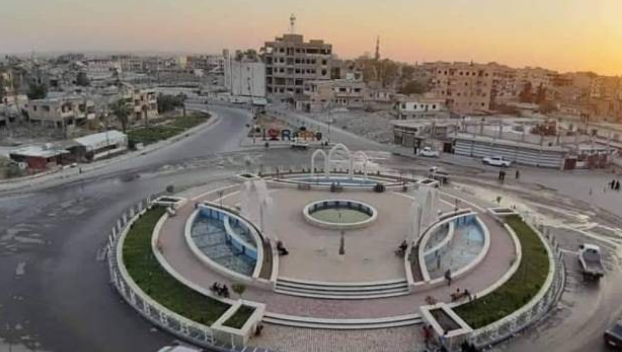Raqqa Governorate is located in northern Syria and is one of the largest governorates by area, covering approximately 19,618 square kilometers. It's known as Syria's agricultural hub due to its fertile plains stretching along the Euphrates River.
1. Historical Overview
Raqqa boasts a rich history dating back to ancient times, having been home to numerous civilizations such as the Assyrians, Hittites, and Romans. During the Islamic era, Raqqa became the capital of the Abbasid Caliphate for a period in the 8th century CE, and it gained prominence as an important scientific and cultural center. The city has undergone multiple historical developments and was named "Raqqa" after the river that flows through it.
2. What is it Known For?
- Agriculture: Considered Syria's food basket, cultivating wheat, barley, cotton, and vegetables on a large scale.
- Agricultural Industries: Such as grain milling and food product manufacturing.
- Livestock: Raising cattle and camels.
- Water: The Euphrates River flows through it, providing essential water for agriculture.
3. Key Tourist and Historical Landmarks
- Ancient Raqqa City: Contains ruins dating back to Islamic and Abbasid eras.
- Raqqa Castle: A historic castle located on the banks of the Euphrates River.
- Archaeological site of Tell Abu Hassan.
- Ancient Islamic palaces that reflect the cultural and historical heritage.
- Local museums displaying archaeological and historical artifacts.
4. Geography and Climate
It is situated on the plains of the Euphrates River, characterized by fertile soil and a Mediterranean climate that is hot in summer and cold in winter, with moderate rainfall. The terrain in the governorate is mostly plains and valleys cultivated with vegetables and grains.
5. Culture and Customs
Raqqa is known for its popular traditions, which include diverse religious and ethnic celebrations, especially with the presence of Arab and Kurdish populations. Folk songs and traditional dances are an important part of social occasions.
6. Economic Activities
The economy primarily relies on extensive agriculture, in addition to some agricultural industries such as grain mills and food product manufacturing. There are also some commercial and service activities in the cities.
7. Major Cities and Towns
- Raqqa (Capital)
- Tabqa
- Mansoura
- Tell Abyad
- Ain Issa
8. Infrastructure and Services
The governorate has a road network connecting it to other governorates, although many areas have suffered damage due to conflict. There are hospitals, health centers, schools, and the University of Raqqa serving students in the region.
9. Current Situation and Challenges
The governorate was severely damaged during the Syrian war, especially its infrastructure and agriculture, which relies on the Euphrates River's water. It faces challenges in reconstruction, security, and improving living conditions.
10. Prominent Figures
- A number of writers and intellectuals who have contributed to Syrian cultural life.
- Activists in local development and civil society fields.

